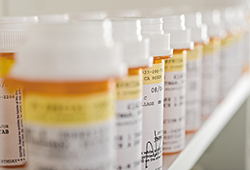 Idenix’s Pharmaceuticals’ patent (U.S. Patent No. 7,608,597) was invalidated for having a genus that was “too broad.” The trial judge ruled that the patent did not enable a person of skill in the art to select a single compound from the “billions and billions” of compounds encompassed by the genus. On appeal, the Federal Circuit upheld the trial judge’s ruling of non-enablement. On January 19, 2021, the Supreme Court of the United States (SCOTUS) declined to review the Federal Circuit’s decision to invalidate Idenix’s patent.
Idenix’s Pharmaceuticals’ patent (U.S. Patent No. 7,608,597) was invalidated for having a genus that was “too broad.” The trial judge ruled that the patent did not enable a person of skill in the art to select a single compound from the “billions and billions” of compounds encompassed by the genus. On appeal, the Federal Circuit upheld the trial judge’s ruling of non-enablement. On January 19, 2021, the Supreme Court of the United States (SCOTUS) declined to review the Federal Circuit’s decision to invalidate Idenix’s patent.
This decision is likely to have effects across the pharmaceutical and biotech field. The Federal Circuit’s ruling may narrow the scope of generic protection granted to pharmaceutical companies for novel drug scaffolds. Chemical genus claims are often used to deter “fast followers” from making small modifications to a drug’s design to avoid patent coverage. In their amici briefs, both GlaxoSmithKline and Amgen argued that this narrowing would result in a decrease in innovation across the pharmaceutical space.
Idenix’s patent claimed a method of treating Hepatitis C virus (HCV) infection by administering a class of synthetic nucleosides, β-D-2′-methylribofuranosyl nucleosides, also known as a “2’-methyl-up nucleosides”. Idenix’s patent covered any 2′-methyl-up nucleoside which fell within the claimed chemical genus that was effective in treating HCV. Idenix sued Gilead Sciences, alleging the ‘597 patent’s claimed genus encompassed the compound sofosbuvir, an active ingredient in Gilead’s hepatitis C drugs Sovaldi and Harvonis. In 2016, a Delaware jury agreed and awarded Idenix $2.5 billion. However, the district judge set aside the jury’s verdict, ruling the patent was invalid on enablement grounds. The judge contended this genus was too broad, and the patent did not enable a person of skill in the art to select a single compound from the “billions and billions” of compounds encompassed by the genus.
On appeal, the Federal Circuit determined the patent did not provide “meaningful guidance” or “useful blaze marks” to direct a person of skill to specific effective hepatitis C therapeutics within the claimed genus. That a person of ordinary skill in the art would not know, without undue experimentation, which 2′- methyl-up nucleosides would be effective for treating HCV. The court concluded that the working examples present in the patent were “very narrow, despite the wide breadth of the claims at issue” and were insufficient to enable such a broad genus.
Merck & Co. acquired Idenix Pharmaceuticals for $3.85 billion in 2014.
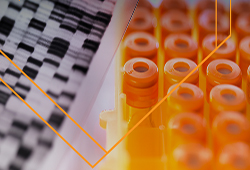 Despite the turmoil and disruption of 2020, plaintiffs’ lawyers and courts appear to have adapted readily to our “new normal.” Although at lower rates than previous years, plaintiffs’ firms continued to file securities class actions against publicly traded pharmaceutical, biotechnology, medical device and healthcare product and services companies in 2020, while courts continued to issue detailed, substantive decisions in these actions. The number of class action filings in state and federal courts from last year shows a 22% decline from a record level in 2019 – a decrease for the first time since 2016, but still far higher than the 1997-2019 average.
Despite the turmoil and disruption of 2020, plaintiffs’ lawyers and courts appear to have adapted readily to our “new normal.” Although at lower rates than previous years, plaintiffs’ firms continued to file securities class actions against publicly traded pharmaceutical, biotechnology, medical device and healthcare product and services companies in 2020, while courts continued to issue detailed, substantive decisions in these actions. The number of class action filings in state and federal courts from last year shows a 22% decline from a record level in 2019 – a decrease for the first time since 2016, but still far higher than the 1997-2019 average.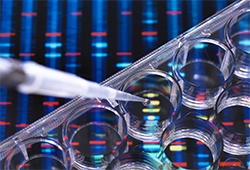
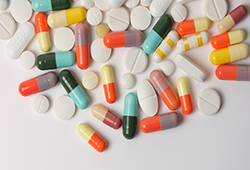 COVID-19 put into perspective the importance of the pharma industry to the global economy. Goodwin London Life Sciences partner
COVID-19 put into perspective the importance of the pharma industry to the global economy. Goodwin London Life Sciences partner  Goodwin’s 2nd Annual Goodwin + KPMG @ JPMorgan Symposium kicked off Day Two of our Symposium with an overview of the effects of the pandemic on the biopharma market by Dale Raine, Managing Director and Co-Head of the European Healthcare Investment Banking at Lazard in conversation with Goodwin Life Sciences Corporate partner, Graham Defries. This chat was followed by a panel discussing global life sciences outlook, partnerships and M&A opportunities, and whether Europe will continue to be a focus for 2021 and beyond. The Symposium wrapped up with a fireside chat featuring the Carl Hansen, CEO and Tryn Stimart, CLO of AbCellera in conversation with Goodwin Life Sciences partner Deepa Rich, discussing drug discovery and the accelerated adoption of AI and machine learning in our new reality, and their path to one of the largest IPOs in biotech history.
Goodwin’s 2nd Annual Goodwin + KPMG @ JPMorgan Symposium kicked off Day Two of our Symposium with an overview of the effects of the pandemic on the biopharma market by Dale Raine, Managing Director and Co-Head of the European Healthcare Investment Banking at Lazard in conversation with Goodwin Life Sciences Corporate partner, Graham Defries. This chat was followed by a panel discussing global life sciences outlook, partnerships and M&A opportunities, and whether Europe will continue to be a focus for 2021 and beyond. The Symposium wrapped up with a fireside chat featuring the Carl Hansen, CEO and Tryn Stimart, CLO of AbCellera in conversation with Goodwin Life Sciences partner Deepa Rich, discussing drug discovery and the accelerated adoption of AI and machine learning in our new reality, and their path to one of the largest IPOs in biotech history.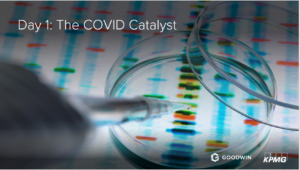 Goodwin held the 2nd Annual Goodwin +KPMG @ JPMorgan Symposium on Wednesday, January 27th and Thursday, January 28th. The Symposium kicked off with industry luminary, Noubar Afeyan, Chairman and Co-Founder of Moderna sitting down for a fireside chat with Vice Chairman, Global Chair of M+A and Goodwin partner, Stuart Cable.
Goodwin held the 2nd Annual Goodwin +KPMG @ JPMorgan Symposium on Wednesday, January 27th and Thursday, January 28th. The Symposium kicked off with industry luminary, Noubar Afeyan, Chairman and Co-Founder of Moderna sitting down for a fireside chat with Vice Chairman, Global Chair of M+A and Goodwin partner, Stuart Cable. Idenix’s Pharmaceuticals’ patent (U.S. Patent No. 7,608,597) was invalidated for having a genus that was “too broad.” The trial judge ruled that the patent did not enable a person of skill in the art to select a single compound from the “billions and billions” of compounds encompassed by the genus. On appeal, the Federal Circuit upheld the trial judge’s ruling of non-enablement. On January 19, 2021, the Supreme Court of the United States (SCOTUS) declined to review the Federal Circuit’s decision to invalidate Idenix’s patent.
Idenix’s Pharmaceuticals’ patent (U.S. Patent No. 7,608,597) was invalidated for having a genus that was “too broad.” The trial judge ruled that the patent did not enable a person of skill in the art to select a single compound from the “billions and billions” of compounds encompassed by the genus. On appeal, the Federal Circuit upheld the trial judge’s ruling of non-enablement. On January 19, 2021, the Supreme Court of the United States (SCOTUS) declined to review the Federal Circuit’s decision to invalidate Idenix’s patent.